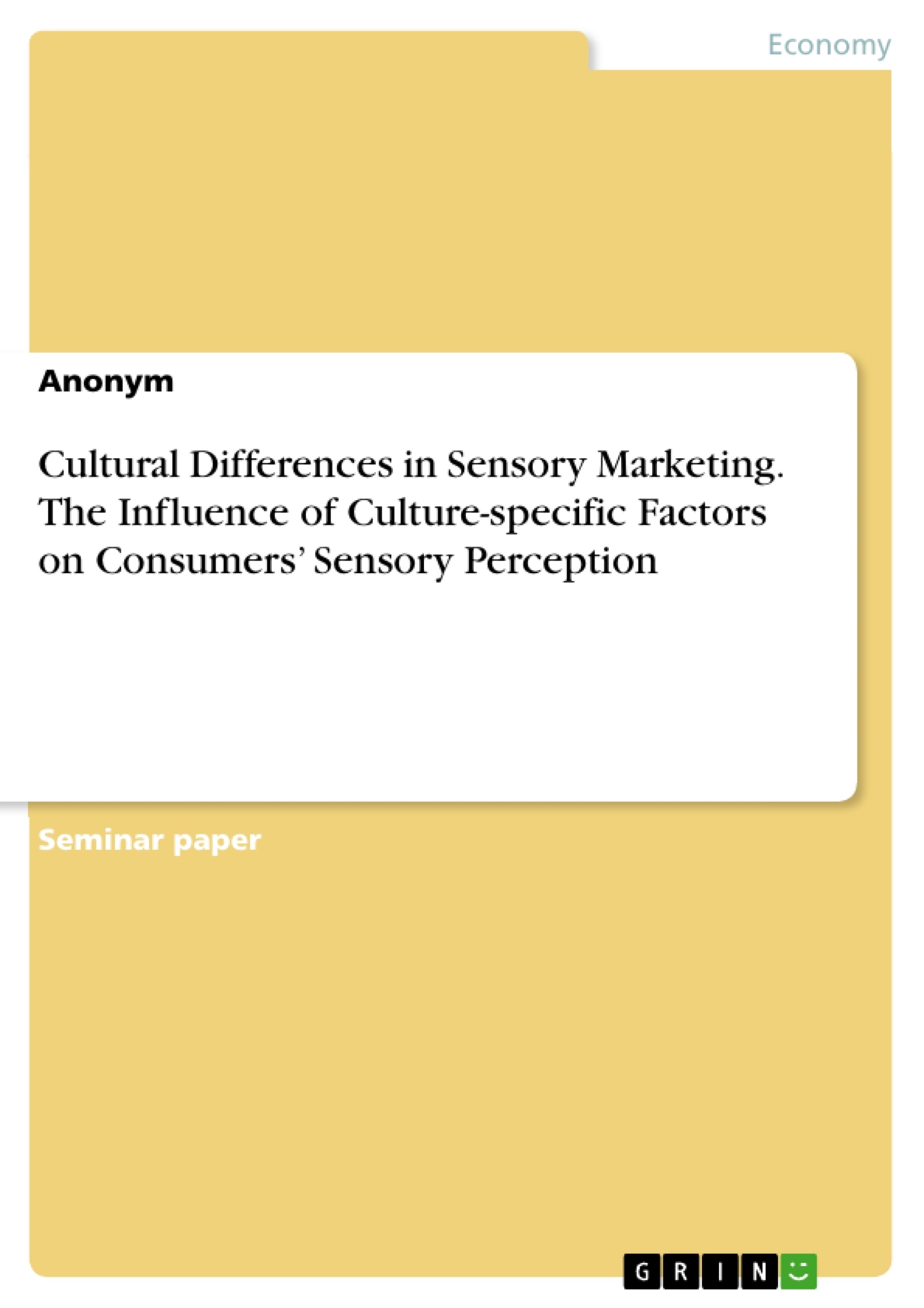This paper deals with the cultural differences in sensory marketing and investigates the influence of culture-specific factors on the sensory perception of consumers. Since cultural factors such as traditions, values and norms can have an impact on consumer behavior, cultural differences in sensory perception are particularly important for sensory marketing managers.
By reviewing relevant literature, this paper concludes that cultural differences can be found in the perception and interpretation of sensory stimuli. These differences are most frequently observed between Western and Eastern cultures and can vary from sense to sense. In this context, one of the major findings of this paper is which culture-specific factors have an influence on sensory perception. These include geographical differences, cultural experiences with food, scents and sounds, as well as cultural touching habits and color symbolism. Different preferences for music, flavor and differences in writing are also identified as influencing factors.
These findings also underline the relevance of cultural differences for marketing managers in the context of sensory marketing. The individual differences indicate that it is more efficient for sensory marketing managers to adapt marketing strategies to local markets. Furthermore, the different consumer preferences open up new opportunities for sensory marketing managers to address them more effectively.
- Quote paper
- Anonymous,, 2024, Cultural Differences in Sensory Marketing. The Influence of Culture-specific Factors on Consumers’ Sensory Perception, Munich, GRIN Verlag, https://www.hausarbeiten.de/document/1482193



